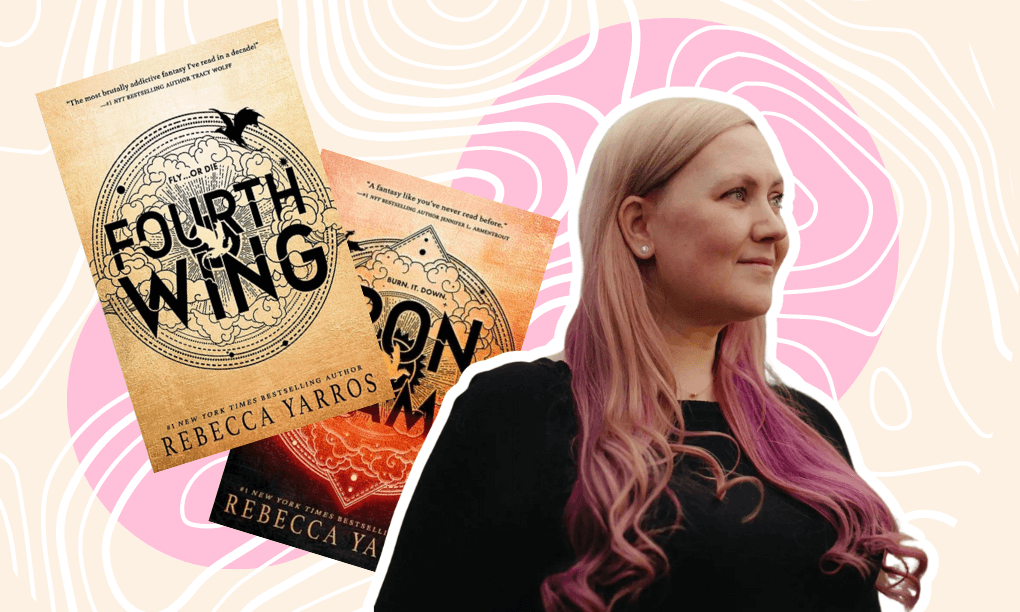I bet a lot of us get anxious when staring at a blank document with a blinking cursor, especially when feeling the additional pressure of the deadline (upload before midnight!)—this inability to write is often referred to as “writer’s block.” Writing is an essential tool for any college student, no matter what track you pursue: our curricula are full of essays, reflections, reviews, and final papers.
This article covers some principles of successful and steady writing and gives solid tips on how to proceed with your written assignments when you feel paralyzed by the block.
As much as writing at college is inevitable, almost no guidance is given concerning successful writing (unless you’re taking creative writing courses). Don’t get me wrong: students are usually instructed in the requirements for a piece of writing (e.g. its length and structure). You were also probably advised to purchase a copy of Academic Writing for Graduate Students or to check the Chicago Manual of Style. Some help is also given in conducting research and arranging your notes before writing a paper. However, the magic behind being able to type words and sentences remains a secret while many students find themselves struggling, not knowing how to start writing or how to hit more than 200 words a day. If you google a piece of advice on fighting writer’s block, you’ll get something more suitable for professional writers but not for college students.
Before turning to the tips, one misconception has to be destroyed — nobody is a writer by nature. This ability is trained and it also depends on your mindset: you can become more easy-going with writing by practicing it regularly and you shouldn’t expect your first draft to be perfect. Moreover, don’t wait for inspiration — it is a cultural myth that is only useful for justifying your procrastination or putting things off.
And to bring another note of reassurance: not only college students who are yet inexperienced in writing struggle with putting words at work. Some of the greatest authors also reported their inability to produce new work, even when they desperately wanted it (and nobody would claim that F. Scott Fitzgerald, Hermann Melville, or Adele don’t have a talent).
How to Overcome Writer’s Block?
Writer’s block has mostly psychological causes, like the fear of not living up to your or someone’s expectations, perfectionism, imposter syndrome, or procrastination. If you recognize any of these psychological parasites in yourself, gradually treating the problem might ease your relationship with writing. However, it’s a time-demanding solution and we usually need some quick fix for writing one can implement right now.
Obviously, practice makes a huge difference, as well as the understanding that it’s not given; nobody can write a perfect essay in one go. Moreover, the amount does not always equal the quality: if you write a page a day it’s much better than nothing.
It’s also important to know your writing pace: I know people who work best under deadline pressure and can produce high-quality essays in two days (given that they’ve read and made some notes beforehand) but I am, for example, a slow writer and can spend only two or three hours a day writing productively. So I need to plan all my writing tasks. If you’re in your last college years or already in MA or Ph.D. program, you have probably figured out your writing pace. If you are just starting college, give yourself enough space and time to experiment and to account not only for the results but also for the process.

These are very general recommendations that you should consider during your studies. However, I have a few tips on hand that help me and other students if not to write better but at least to overcome those first dizzy moments when you can’t think of a single word to write down.
8 Tips for Breaking the Ice of Your Writing Assignments
1. Don’t use Microsoft Word or Pages
Or any other program with extensive editing features. Instead, use note-taking apps with minimal editing and without a word count (it can be very stressful to see that you’ve done “only 300 words in an hour”, which is a great result, by the way). Simple note-taking programs put less pressure on you since writing doesn’t look “final,” and it’s not the format in which you’re submitting your finalized paper. You also don’t have any room for playing around with fonts and title page templates.
Although some college instructors are especially keen on seeing the right formatting in their students’ papers, leave these requirements aside. You can fix it later when you transfer your writing to a proper editing program. Similarly, tidy up your citations at the very end according to the chosen style (it’s easier if you use bibliographic managers like Zotero or Mendeley). For macOS, Notes helps a lot to kick off a writing process but there are many other similar tools.
2. Don’t write in complete sentences, brainstorm instead
At least at first. It is helpful to brainstorm all the keywords and arguments for 10–15 minutes without worrying much about coherence. Then you can arrange the words according to a tentative structure of your paper, email, or whatever lies ahead of you (don’t confuse this process with making research notes from secondary literature). When you see that you’ve already filled the white void of a blank document, it’s easier to continue and think of some ways of connecting these words into meaningful sentences. It is also effective for abandoning the idea of producing a finalized version. It brings you into a more “drafty” mood which is a perfect way to start.
3. Switch off spelling and grammar check
It might be simply distracting: you see something underlined in red or blue, and you immediately ponder what is wrong with this word or sentence. It disturbs your workflow. And these grammatical and syntactical errors are quite easy to correct later during the editing stage.
4. “Hey you, listen here”
When not knowing how to start a paper, type this phrase. Imagine that you write a message to your friend/mom/partner explaining the problem you tackle in your essay or a question you want to address in the email. It’s a psychological miracle but you will see words coming out in a steady flow. It’s also effective when fighting the fear of a blank page—at least some words are already there. Of course, you can use whatever “starting” phrase you like the most.
5. Reserve a limited amount of time for writing
One can spend two hours staring at the title page just because one has these two hours or more reserved for writing. According to Parkinson’s law, work tends to fill up all the time allocated for it. So don’t plan on writing something for the whole day that you can, in theory, write in two hours or a dozen 30-minute long sessions.
Therefore, working in smaller chunks can boost your concentration and help you produce these first lines and pages. You can consider setting a writing session between the classes or when your friend is 15 minutes late. Get your laptop out and start drafting. You will subconsciously feel that you won’t finish the whole thing in 10 minutes, which reduces the pressure you put on yourself. The Pomodoro technique is effective in overruling Parkinson’s law.
6. Set up writing groups
Social accountability and peer support are proven to be effective in boosting one’s productivity. Wendy Laura Belcher, a specialist in academic writing, urges us to “make writing social”. It’s also essential to have somebody to share your insights and frustrations with. So team up with some of your mates and organize a two-hour writing session. Don’t forget to share your goals for the day before plunging into writing.

7. No need to start from the beginning
I often feel the pressure of a title or an opening phrase that should be superb, catchy, and thought-provoking. This brings us into a writing stupor. The only way around is to understand that writing doesn’t always start from the beginning. It’s sometimes even easier to adjust or write the first line after the paper is almost complete.
8. Don’t be afraid of rewriting
Not much can be said about it. Professional writing includes intensive hours of editing and rewriting and this step is inevitable for your college papers too. Knowing that you will later edit whatever you write at the moment makes actual writing less stressful and demanding. If your timeframe allows, distance yourself from the writing for at least a day before coming back to edit it. Or use a different medium (print it out, for example), it also helps your mind to distance from the writing.

If you want to get tips from a renowned author, have a look at Stephen King’s On Writing. Although it’s not a writing manual but almost a memoir, the book is full of thoughts and tips on how to approach writing and how to practice it. And it’s a good read, as is anything by Stephen King!
On a final note, nothing good will come out of your writing if you are exhausted. So make sure your writing alternates with activities that boost your imagination, calm you down, or simply bring joy. This means you should keep up a healthy study-life balance.


